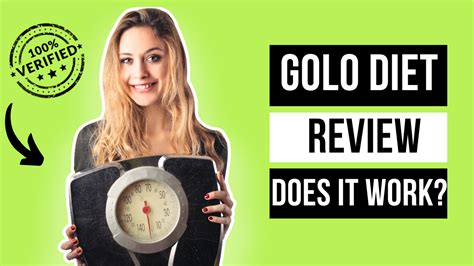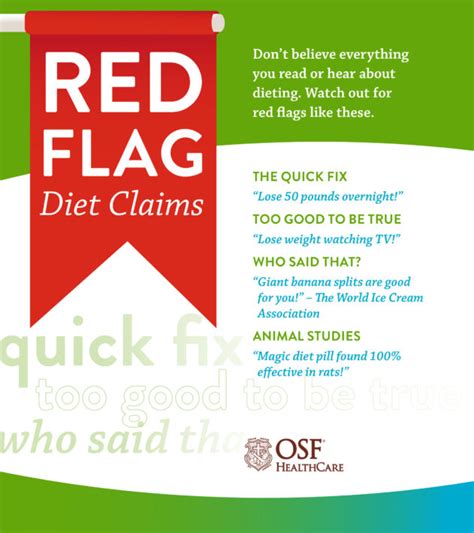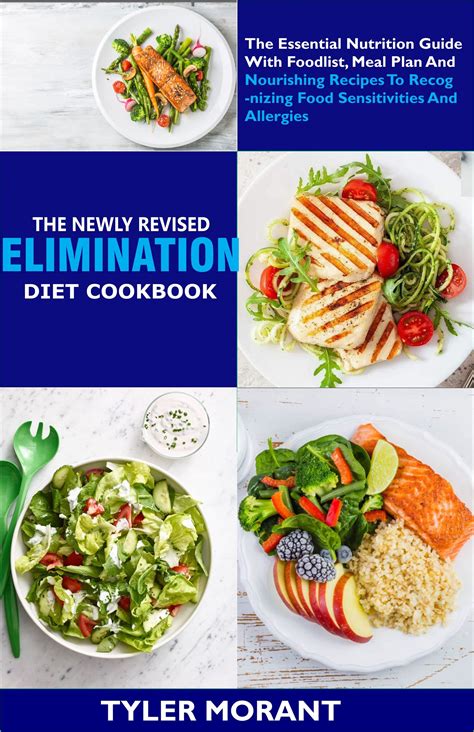Tips for Recognizing Counterfeit Nutrition Plans
How Can I Recognize a Fake Nutrition Plan?
Navigating the world of nutrition plans can be overwhelming, especially with the abundance of information and promises of rapid weight loss. Unfortunately, this abundance also attracts scammers, who may peddle fake nutrition plans with unrealistic claims and potentially harmful advice. Recognizing the signs of a counterfeit plan is crucial to protect your health and your wallet.
Here are some red flags that should raise your suspicion:
Unrealistic Promises
- Guaranteed weight loss in a short period: Beware of plans claiming you’ll lose a significant amount of weight in a week or two. Sustainable weight loss is a gradual process, and any plan that promises overnight miracles is likely a scam.
- «Magic» or «Secret» ingredients: Genuine nutrition plans focus on healthy, balanced eating, not on miracle products or hidden formulas.
- Extreme calorie restrictions: Plans that drastically limit your calorie intake are often unsustainable and can be detrimental to your health.
Lack of Credibility
- Unqualified or anonymous creators: Be wary of plans offered by people with no verifiable credentials or experience in nutrition or dietetics.
- Missing scientific evidence: A legitimate nutrition plan will be backed by scientific research and evidence. If the plan lacks any scientific basis, it’s likely a sham.
- Testimonials without verifiable sources: Beware of plans that heavily rely on anonymous testimonials without any supporting data.
Suspicious Marketing Tactics
- High-pressure sales tactics: If you feel pressured to sign up immediately, it’s a red flag. Legitimate nutritionists will provide ample information and allow you time to make an informed decision.
- Exaggerated claims: Claims of «cure-all» solutions, eliminating specific health conditions, or guaranteed results are often signs of a fake plan.
- Lack of transparency: A genuine nutrition plan will provide clear details about the program, its methodology, and the qualifications of the provider.
Remember, a legitimate nutrition plan prioritizes your health and well-being. It emphasizes a balanced approach to eating, considers your individual needs, and promotes sustainable lifestyle changes. Always consult a registered dietitian or qualified nutritionist for personalized guidance and evidence-based recommendations.

What Should I Look For in a Legit Nutrition Plan?
Identifying a legitimate nutrition plan can be challenging, but it’s crucial for your health and well-being. A genuine plan will prioritize your individual needs, offer evidence-based advice, and promote sustainable lifestyle changes.
Here are some key factors to consider when evaluating a nutrition plan:
Focus on Whole Foods
A legitimate nutrition plan will encourage a diet rich in whole, unprocessed foods like fruits, vegetables, lean proteins, and whole grains. Avoid plans that heavily rely on processed foods, supplements, or restrictive diets.
Individualized Approach
A good plan recognizes that everyone is different. It considers factors like your age, gender, activity level, medical history, and dietary preferences. Be wary of plans that offer a one-size-fits-all approach.
Evidence-Based Information
A legitimate plan will be grounded in scientific research and evidence. Look for plans that cite credible sources and research studies to support their recommendations. Beware of plans based solely on anecdotal evidence or testimonials.
Sustainable Lifestyle Changes
A genuine plan emphasizes creating sustainable habits and lifestyle changes, not a temporary quick fix. It should encourage gradual adjustments to your diet and exercise routine rather than drastic, unsustainable changes.
Qualified Professionals
A legitimate plan will be developed and supervised by registered dietitians, nutritionists, or other qualified health professionals. Seek guidance from professionals with the necessary credentials and experience to ensure you receive safe and effective advice.
When researching nutrition plans, consider the following questions:
- Who created the plan, and what are their qualifications?
- Is the information provided evidence-based and supported by scientific research?
- Does the plan consider your individual needs and goals?
- Are the recommendations sustainable and practical for your lifestyle?
By considering these factors and seeking guidance from qualified professionals, you can increase your chances of finding a legitimate and effective nutrition plan that supports your health goals.

What Are the Warning Signs of a Scam Nutrition Plan?
The online world is flooded with promises of quick weight loss and miraculous transformations, but not all plans are created equal. Identifying the warning signs of a scam nutrition plan is crucial to protect your health and your wallet.
Here are some red flags to watch out for:
Unrealistic Claims
- Guaranteed weight loss in a short period: Beware of plans claiming to shed significant weight in a week or two. Sustainable weight loss is a gradual process, and rapid results are often unsustainable and unhealthy.
- «Magic» or «Secret» ingredients: Genuine nutrition plans focus on whole foods and balanced eating, not on miracle products or hidden formulas.
- Promises to cure specific diseases: Nutrition plans cannot cure diseases. If a plan claims to cure a specific illness, it’s likely a scam.
- Extreme calorie restrictions: Plans that drastically limit your calorie intake can lead to nutrient deficiencies and other health problems.
Lack of Credibility
- Unqualified or anonymous creators: Be cautious of plans offered by individuals with no verifiable credentials or experience in nutrition or dietetics.
- Missing scientific evidence: A legitimate plan will be backed by scientific research and evidence. If the plan lacks any scientific basis, it’s a red flag.
- Testimonials without verifiable sources: Beware of plans that heavily rely on anonymous testimonials without any supporting data.
Suspicious Marketing Tactics
- High-pressure sales tactics: If you feel pressured to sign up immediately, it’s a red flag. Legitimate nutritionists will provide ample information and allow you time to make an informed decision.
- Exaggerated claims: Beware of plans that make outlandish claims, such as «eliminate cravings» or «transform your body in days.»
- Lack of transparency: A genuine plan will provide clear details about the program, its methodology, and the qualifications of the provider.
- Money-back guarantees with unreasonable restrictions: Be wary of plans that offer guarantees with many strings attached. A legitimate plan will stand behind its services with a reasonable refund policy.
Remember, a genuine nutrition plan prioritizes your health and well-being. It emphasizes a balanced approach to eating, considers your individual needs, and promotes sustainable lifestyle changes. Always consult a registered dietitian or qualified nutritionist for personalized guidance and evidence-based recommendations.

What Are Some Common Red Flags to Look Out For When It Comes to Nutrition Plans?
Navigating the vast world of nutrition advice can be challenging, especially with the abundance of information and promises of quick results. It’s important to be discerning and recognize common red flags that may indicate a counterfeit or potentially harmful nutrition plan.
Here are some key warning signs to keep in mind:
Unrealistic Weight Loss Claims
- Promises of rapid weight loss: Beware of plans that guarantee significant weight loss in a short period, such as «lose 10 pounds in a week.» Sustainable weight loss is a gradual process, and any plan promising overnight miracles is likely a scam.
- Restrictions on specific food groups: While certain food groups may be limited in a balanced diet, plans that completely eliminate entire categories of food, such as carbohydrates or fats, are often unsustainable and may lead to nutrient deficiencies.
- Focus on calorie counting only: While calorie intake is important, a healthy diet involves more than simply counting calories. A balanced approach considers nutrient density, macronutrient ratios, and food quality.
Lack of Scientific Support
- «Magic» or «Secret» ingredients: Genuine nutrition plans focus on whole foods and balanced eating, not on miracle products or hidden formulas.
- No scientific evidence cited: A legitimate nutrition plan will be backed by scientific research and evidence. If the plan lacks any scientific basis or doesn’t cite credible sources, it’s a red flag.
- Focus on anecdotal evidence only: Beware of plans that rely solely on testimonials or personal anecdotes without any supporting scientific data.
Suspicious Marketing Tactics
- High-pressure sales tactics: If you feel pressured to sign up immediately, it’s a red flag. Legitimate nutritionists will provide ample information and allow you time to make an informed decision.
- Exaggerated claims: Beware of plans that make outlandish claims, such as «cure-all» solutions, eliminating specific health conditions, or guaranteed results.
- Lack of transparency: A genuine nutrition plan will provide clear details about the program, its methodology, and the qualifications of the provider. If information is vague or hidden, it could be a scam.
Remember, a genuine nutrition plan prioritizes your health and well-being. It emphasizes a balanced approach to eating, considers your individual needs, and promotes sustainable lifestyle changes. Always consult a registered dietitian or qualified nutritionist for personalized guidance and evidence-based recommendations.

Are There Any Warning Signs to Look For When It Comes to a Nutrition Plan?
The internet and social media are brimming with promises of quick weight loss and miraculous transformations. However, not all nutrition plans are created equal, and some may be more harmful than helpful. Understanding common warning signs can help you avoid falling prey to counterfeit or potentially dangerous plans.
Here are some key red flags to be aware of:
Unrealistic Promises
- Guaranteed weight loss in a short period: Beware of plans that promise significant weight loss in a week or two. Sustainable weight loss is a gradual process, and any plan promising overnight miracles is likely a scam.
- «Magic» or «Secret» ingredients: Genuine nutrition plans focus on whole foods and balanced eating, not on miracle products or hidden formulas.
- Promises to cure specific diseases: Nutrition plans cannot cure diseases. If a plan claims to cure a specific illness, it’s likely a scam.
- Extreme calorie restrictions: Plans that drastically limit your calorie intake can lead to nutrient deficiencies and other health problems.
Lack of Credibility
- Unqualified or anonymous creators: Be cautious of plans offered by individuals with no verifiable credentials or experience in nutrition or dietetics.
- Missing scientific evidence: A legitimate plan will be backed by scientific research and evidence. If the plan lacks any scientific basis, it’s a red flag.
- Testimonials without verifiable sources: Beware of plans that heavily rely on anonymous testimonials without any supporting data.
Suspicious Marketing Tactics
- High-pressure sales tactics: If you feel pressured to sign up immediately, it’s a red flag. Legitimate nutritionists will provide ample information and allow you time to make an informed decision.
- Exaggerated claims: Beware of plans that make outlandish claims, such as «eliminate cravings» or «transform your body in days.»
- Lack of transparency: A genuine plan will provide clear details about the program, its methodology, and the qualifications of the provider. If information is vague or hidden, it could be a scam.
- Money-back guarantees with unreasonable restrictions: Be wary of plans that offer guarantees with many strings attached. A legitimate plan will stand behind its services with a reasonable refund policy.
Remember, a genuine nutrition plan prioritizes your health and well-being. It emphasizes a balanced approach to eating, considers your individual needs, and promotes sustainable lifestyle changes. Always consult a registered dietitian or qualified nutritionist for personalized guidance and evidence-based recommendations.
How Can I Spot a Fake Nutrition Plan?
The world of nutrition is often filled with promises of quick weight loss and miraculous transformations, but not all plans are created equal. Recognizing the signs of a fake nutrition plan is essential to protect your health and avoid scams.
Here are some key red flags that should raise your suspicion:
Unrealistic Promises
- Guaranteed weight loss in a short period: Beware of plans claiming to shed significant weight in a week or two. Sustainable weight loss is a gradual process, and rapid results are often unsustainable and unhealthy.
- «Magic» or «Secret» ingredients: Genuine nutrition plans focus on whole foods and balanced eating, not on miracle products or hidden formulas.
- Promises to cure specific diseases: Nutrition plans cannot cure diseases. If a plan claims to cure a specific illness, it’s likely a scam.
- Extreme calorie restrictions: Plans that drastically limit your calorie intake can lead to nutrient deficiencies and other health problems.
Lack of Credibility
- Unqualified or anonymous creators: Be cautious of plans offered by individuals with no verifiable credentials or experience in nutrition or dietetics.
- Missing scientific evidence: A legitimate plan will be backed by scientific research and evidence. If the plan lacks any scientific basis, it’s a red flag.
- Testimonials without verifiable sources: Beware of plans that heavily rely on anonymous testimonials without any supporting data.
Suspicious Marketing Tactics
- High-pressure sales tactics: If you feel pressured to sign up immediately, it’s a red flag. Legitimate nutritionists will provide ample information and allow you time to make an informed decision.
- Exaggerated claims: Beware of plans that make outlandish claims, such as «eliminate cravings» or «transform your body in days.»
- Lack of transparency: A genuine plan will provide clear details about the program, its methodology, and the qualifications of the provider.
- Money-back guarantees with unreasonable restrictions: Be wary of plans that offer guarantees with many strings attached. A legitimate plan will stand behind its services with a reasonable refund policy.
Remember, a genuine nutrition plan prioritizes your health and well-being. It emphasizes a balanced approach to eating, considers your individual needs, and promotes sustainable lifestyle changes. Always consult a registered dietitian or qualified nutritionist for personalized guidance and evidence-based recommendations.
How Do I Know If a Nutrition Plan Is Legit?
Navigating the world of nutrition advice can be confusing, especially when faced with countless promises of quick weight loss and miraculous transformations. It’s essential to be discerning and look for indicators of a legitimate and safe nutrition plan.
Here are some key factors to consider when evaluating a nutrition plan:
Focus on Whole Foods
A legitimate nutrition plan will encourage a diet rich in whole, unprocessed foods like fruits, vegetables, lean proteins, and whole grains. Avoid plans that heavily rely on processed foods, supplements, or restrictive diets.
Individualized Approach
A good plan recognizes that everyone is different. It considers factors like your age, gender, activity level, medical history, and dietary preferences. Be wary of plans that offer a one-size-fits-all approach.
Evidence-Based Information
A legitimate plan will be grounded in scientific research and evidence. Look for plans that cite credible sources and research studies to support their recommendations. Beware of plans based solely on anecdotal evidence or testimonials.
Sustainable Lifestyle Changes
A genuine plan emphasizes creating sustainable habits and lifestyle changes, not a temporary quick fix. It should encourage gradual adjustments to your diet and exercise routine rather than drastic, unsustainable changes.
Qualified Professionals
A legitimate plan will be developed and supervised by registered dietitians, nutritionists, or other qualified health professionals. Seek guidance from professionals with the necessary credentials and experience to ensure you receive safe and effective advice.
When researching nutrition plans, consider the following questions:
- Who created the plan, and what are their qualifications?
- Is the information provided evidence-based and supported by scientific research?
- Does the plan consider your individual needs and goals?
- Are the recommendations sustainable and practical for your lifestyle?
By considering these factors and seeking guidance from qualified professionals, you can increase your chances of finding a legitimate and effective nutrition plan that supports your health goals.
How Can I Tell if a Nutrition Plan Is Legit?
With the vast amount of information available online, it can be difficult to determine whether a nutrition plan is legitimate. However, understanding a few key indicators can help you separate the genuine plans from the counterfeit ones.
Here are some factors to consider when evaluating a nutrition plan:
Focus on Whole Foods
A legitimate nutrition plan will emphasize a diet rich in whole, unprocessed foods like fruits, vegetables, lean proteins, and whole grains. It should avoid overly restrictive diets that eliminate entire food groups or rely heavily on processed foods, supplements, or «miracle» ingredients.
Individualized Approach
A genuine plan recognizes that every individual is unique. It will consider your age, gender, activity level, medical history, and dietary preferences to provide personalized recommendations. Be wary of plans that offer a one-size-fits-all approach or disregard your specific needs.
Evidence-Based Information
A legitimate plan will be grounded in scientific research and evidence. Look for plans that cite credible sources and research studies to support their recommendations. Avoid plans based solely on anecdotal evidence, testimonials, or unsubstantiated claims.
Sustainable Lifestyle Changes
A genuine plan focuses on creating sustainable habits and lifestyle changes, not a temporary quick fix. It should encourage gradual adjustments to your diet and exercise routine rather than drastic, unsustainable changes.
Qualified Professionals
A legitimate plan will be developed and supervised by registered dietitians, nutritionists, or other qualified health professionals. Look for plans that are created and overseen by individuals with the necessary credentials and experience to ensure you receive safe and effective advice.
Remember, a genuine nutrition plan prioritizes your health and well-being. It emphasizes a balanced approach to eating, considers your individual needs, and promotes sustainable lifestyle changes. Always consult a registered dietitian or qualified nutritionist for personalized guidance and evidence-based recommendations.
Table Summarizing Information on Recognizing Counterfeit Nutrition Plans:
| Characteristic | Legitimate Nutrition Plan | Counterfeit Nutrition Plan |
|---|---|---|
| Promises | Focuses on sustainable weight loss, balanced eating, and overall health improvement | Promises rapid weight loss, miraculous transformations, and «cure-all» solutions |
| Food Focus | Emphasizes whole, unprocessed foods, including fruits, vegetables, lean proteins, and whole grains | Relies on processed foods, supplements, «miracle» ingredients, and restrictive diets |
| Scientific Basis | Backed by scientific research and evidence, with credible sources cited | Lacks scientific basis, relies on anecdotal evidence, testimonials, and unsubstantiated claims |
| Individualization | Tailored to individual needs, considering factors like age, gender, activity level, medical history, and dietary preferences | Offers a one-size-fits-all approach, disregarding individual needs and circumstances |
| Marketing Tactics | Provides transparent information, avoids high-pressure sales tactics, and offers reasonable refund policies | Uses high-pressure sales tactics, makes exaggerated claims, and lacks transparency |
| Professionals | Developed and supervised by registered dietitians, nutritionists, or other qualified health professionals | Created by unqualified individuals or anonymous sources |
FAQs:
What are some common scams involving nutrition plans?
There are numerous scams involving nutrition plans, but some common ones include:
- «Miracle» weight loss products: These often claim to burn fat rapidly and promote rapid weight loss without effort.
- Detox diets: These usually involve restrictive diets that claim to cleanse your body of toxins. They lack scientific support and can be harmful to your health.
- «Free» trials that turn into recurring subscriptions: Some companies offer «free» trials but then automatically charge you a monthly subscription without your consent.
It’s crucial to be wary of any plan that promises unrealistic results or uses misleading marketing tactics. Always research thoroughly and consult with a qualified healthcare professional before starting any new diet or supplement regimen.
What is a safe and effective nutrition plan?
A safe and effective nutrition plan is one that is balanced, evidence-based, and tailored to your individual needs. It should prioritize whole, unprocessed foods and provide a sustainable approach to healthy eating.
Here are some key characteristics of a safe and effective nutrition plan:
- Focuses on whole foods: A diet rich in fruits, vegetables, whole grains, lean proteins, and healthy fats.
- Provides adequate nutrients: Ensures you get all the essential vitamins, minerals, and macronutrients your body needs.
- Is sustainable: Encourages gradual changes and lifestyle adjustments that can be maintained over time.
- Is created by a qualified professional: A registered dietitian or nutritionist with the necessary credentials and experience.
What are the benefits of a healthy diet?
A healthy diet offers numerous benefits for your physical and mental well-being. Some of the key advantages include:
- Improved weight management: A balanced diet can help you maintain a healthy weight or lose weight safely and effectively.
- Reduced risk of chronic diseases: A healthy diet can help lower your risk of developing heart disease, stroke, type 2 diabetes, and some types of cancer.
- Increased energy levels: Eating nutrient-rich foods provides your body with the energy it needs to function optimally.
- Improved mental health: A healthy diet can support brain health and improve mood and cognitive function.
- Stronger immune system: Eating a balanced diet can help strengthen your immune system, making you less susceptible to infections.
What are the warning signs of a bad nutrition plan?
Identifying a bad nutrition plan is crucial for protecting your health and preventing potential harm. Here are some warning signs to be aware of:
- Unrealistic promises of rapid weight loss: Beware of plans that claim you can lose a significant amount of weight in a short period.
- «Magic» or «secret» ingredients: Genuine nutrition plans focus on whole foods, not on miracle products or hidden formulas.
- Extreme calorie restrictions: Plans that drastically limit your calorie intake can lead to nutrient deficiencies and other health problems.
- Lack of scientific evidence: Look for plans that are backed by scientific research and credible sources.
- High-pressure sales tactics: If you feel pressured to sign up immediately, it’s a red flag.
What are the risks of following a fake nutrition plan?
Following a fake nutrition plan can pose various risks to your health and well-being. Some of the potential dangers include:
- Nutrient deficiencies: Restrictive or unbalanced diets can lead to deficiencies in essential vitamins and minerals.
- Weight fluctuations: Rapid weight loss from fake plans is often unsustainable and can lead to yo-yo dieting.
- Health problems: Some fake plans may recommend dangerous or harmful practices, leading to health complications.
- Financial loss: Counterfeit plans can cost you money without providing any real benefits.
How can I find a reputable nutritionist?
Finding a reputable nutritionist is crucial for receiving safe and effective advice. Here are some tips for finding a qualified professional:
- Look for registered dietitians: Registered dietitians (RDs) are qualified professionals who have met specific education and experience requirements.
- Ask for referrals: Seek recommendations from your doctor, friends, or family members.
- Check credentials: Verify the nutritionist’s credentials and licenses through professional organizations like the Academy of Nutrition and Dietetics.
- Read online reviews: Check online reviews from other clients to get an idea of the nutritionist’s experience and reputation.
